- Home
- Martin Cruz Smith
Polar Star Page 3
Polar Star Read online
Page 3
'But to be expelled from the Party...' The Invalid liked hitting that nail, Arkady thought. Never mind dismissal and exile; the real punishment, the fear of every apparatchik, was losing his Party card. Molotov, for example, was denounced for writing up the murder lists of thousands of Stalin's victims. He wasn't in real trouble, though, until they took away his card.
'Membership in the Party was too great an honour. I could not bear it.
'So it seems.' Volovoi pondered the file again. Perhaps the words were too painful. He lifted his eyes to the bookshelves, as if no story there could be so tawdry. 'The captain, of course, is a Party member. Like many sea captains, however, he has a decisive nature, a personality that enjoys risk. He's astute about fishing, about avoiding icebergs, simply going to starboard or port. But politics and human personality are more complicated, more dangerous. Of course he wants to know what happened to the dead girl. We all do. Nothing is more important. That's why the proper control of any inquiry is vital.'
'I've heard that before,' Arkady admitted.
'And didn't listen. Then you were a Party member, a high official, a man with a title. I see by your file that you haven't been on shore for almost a year. Renko, you're a prisoner on this ship. When we return to Vladivostock, while your cabinmates return to their girlfriends or families, you will be met by the Border Guard, an arm of State Security. You know that or you would have left the ship the last time we were home. You have no home, you have no place to go. Your only hope is a strongly positive evaluation from the Polar Star. I am the officer who writes that evaluation.'
'What do you want?'
'I expect', Volovoi said, 'to be closely and quietly informed before any report is made to the captain.'
'Ah.' Arkady bowed his head. 'Well, it's not an investigation, it's only asking questions for a day. I'm not in charge.'
'Since Slava Bukovsky speaks little English, it's obvious you will do some of the questioning. Questions have to be asked, the truth ascertained, before any proper conclusion can be reached. It's important that no information be given to the Americans.'
'I can only do my best. Would you like accidental death? We've considered food poisoning. Homicide?'
'It's also important to protect the name of the ship.'
'Suicide comes in many forms.'
'And the reputation of the unfortunate worker.'
'We could declare her still alive and name her the Queen of Fisherman's Day. Whatever you want. Write it out and I'll sign it right now.'
Volovoi slowly closed the dossier, dropped it into his briefcase, pushed back his chair and stood. His pinkish eyes became a little redder and more fixed, the instinctive reaction of a man sighting a natural enemy.
Arkady gazed back. I know you too.
'Do I have permission to leave?'
'Yes.' Volovoi's voice had gone dry. 'Renko,' he added as Arkady turned to go.
'Yes?'
'Suicide, I think, is what you're best at.'
Chapter Four
* * *
Zina Patiashvili lay on the table, her head resting on a wooden block. She had been pretty, with the nearly Grecian profile that Georgian girls sometimes possessed. Full lips, a graceful neck and limbs, a black pubic stripe and a head of blonde hair. What had she wanted to be, a Scandinavian? She had gone into the sea, touched bottom and returned with no apparent signs of corruption aside from the stillness of death. After the tension of rigor mortis all flesh became slack on the bone: breasts sagged on the ribs, mouth and jaw were loose, eyes flattened under half-open lids, the skin bore a luminous pallor. And the smell. The operating room was no morgue, with a morgue's investments of formaldehyde, and the body was enough to fill the room with an odour like the stench of soured milk.
Arkady lit a second Belomor straight from the first and filled his lungs again. Russian tobacco, the stronger the better. On a medical chart he drew four silhouettes: front, back, right side, left.
Zina seemed to levitate in the flash of Slava's camera, then settle back on the table as her shadow faded. At first the third mate had resisted attending the autopsy, but Arkady insisted so that Slava, already hostile, couldn't later claim any findings were prejudiced or incomplete. If this was a last twinge of professional pride on Arkady's part he didn't know whether to be amused at himself or disgusted. The adventures of a fish gutter! At this point, Slava was snapping pictures like a combat-hardened photo-journalist from Tass, while Arkady felt ill.
'Altogether,' Dr Vainu was saying, 'this trip has been a great disappointment. Back on land I had a good trade in sedatives. Valeryanka, Pentalginum, even foreign pills. But the women on this boat are a group of Amazons. Not even many abortions.'
Vainu was a young consumptive who generally received patients in his leisure suit and slippers, but for the autopsy he wore a lab coat with an ink-stained pocket. As always, he chainsmoked cigarettes laced with anti-stormine for seasickness. He held the cigarette between his fourth and little finger so that every time he took a puff his hand covered his face like a mask. On a side table were his surgical tools: scalpels, protractors, clamps, a small rotary saw for amputations. On the table's lower shelf was a steel pan holding Zina's clothes.
'Sorry about the time of death,' Vainu added airily, 'but who in their right mind would believe a trawl would pick her up more than a day after she went over?'
Arkady tried to smoke and draw at the same time. In Moscow a pathologist did the actual work and the investigator only walked in and out. There were laboratories, teams of forensic specialists, a professional apparatus and the steadying hand of routine. One comfort of the past few years had been the idea that he would never have to deal with victims again. Certainly not a girl out of the sea. A salty rankness underlay the smell of death. It was the smell of all the fish that had come down the factory line, and now of this girl from the same net, her hair matted, her arms, legs, and breasts mottled purple.
'Besides, estimating a time of death from rigor mortis is very chancy, especially in cold conditions,' Vainu went on. 'It's only a contraction caused by chemical reactions after death. Did you know that if you cut a fish fillet before rigor mortis the flesh will shrink and get tough?'
The pen slipped from Arkady's hand and his boot kicked it when he stooped for it.
'You'd think this was your first autopsy.' Slava picked the pen up and surveyed the table clinically. He turned to the doctor. 'She seems pretty bruised. Think she hit the propeller?'
'But her clothes weren't torn. Fists, not a propeller, from my experience,' Vainu said.
Vainu's experience? He was trained in broken bones and appendectomies. Everything else was handled with green liniment or aspirin because, as he said, the infirmary dealt primarily in alcohol and drugs. That was why the table had restraining straps. The Polar Star had run out of morphine a month ago.
Arkady read the top of the chart: 'Patiashvili, Zinaida Petrovna. Born 28/8/61, Tbilisi, G.S.S.R. Height: 1.6m. Weight: 48k. Hair: black (dyed blond). Eyes: Brown.' He handed the clipboard to Vainu and started walking around the table. Just as a man who is terrified of heights will concentrate on one rung at a time, Arkady spoke slowly and moved from detail to detail.
'Doctor, will you indicate the elbows are broken. The small amount of bruising suggests they were broken after death and at low body temperature.' He took a deep breath and flexed her legs. 'Indicate the same for her knees.'
Slava stepped forward, focused, took another shot, picking angles like a movie director on his first film.
'Are you using colour or black-and-white?' Vainu asked.
'Colour,' Slava said.
'On the forearms and calves,' Arkady continued, 'indicate a pooling of blood, not bruising, probably from the position she was in after death. Indicate the same on the breasts.' On the breasts the pooled blood looked like a second, liverish pair of aureoles. He wasn't up to this, Arkady thought; he should have refused. 'On the left shoulder, left side of the rib cage and hip some faint bruises evenly s
paced.' He used a ruler from the lab table. 'Ten apparent bruises in all, about five centimetres apart.'
'Could you hold the ruler a little steadier?' Slava complained and took another shot.
'I think our former investigator needs a drink,' Vainu said.
Silently Arkady agreed. The girl's hands had the feel of cool, soft clay. 'No signs of broken nails or any tissue under them. The doctor will take scrapings and examine them under a microscope.'
'A drink or a crutch,' Slava said.
Arkady took a deep pull on the Belomor before he opened Zina's mouth wide.
'Lips and tongue do not appear bruised or cut.' He closed her mouth and tilted her head to look down her nostrils. He squeezed the bridge of her nose, then pulled the eyelids up from elliptical irises. 'Indicate discolouration in the white of the left eye.'
'Meaning what?' Slava asked.
'There are no signs of a direct blow,' Arkady went on. 'Possibly shock from a blow on the back of the skull.' He rolled Zina on to her shoulder and pulled brine-stiffened hair from the nape of her neck. The skin there was bruised black. He took the clipboard from Vainu and said, 'Cut her.'
The doctor selected a scalpel and, still smoking a cigarette with a long ash, made a slice the length of the cervical vertebrae. Arkady cradled the head as Vainu probed.
'This is your lucky day,' the doctor said drily. 'Indicate a crushed first vertebra and base of the skull. This must be a little triumph for you.' He glanced at Arkady and then at the saw. 'We could bring the brain out to make sure. Or crack the chest and examine the air passages for sea water.'
Slava snapped a picture of the neck and straightened up, swaying a little as he stood.
'No.' Arkady let her head settle on the block and closed her eyes. He rubbed his hands on his jacket and lit a second Belomor from the first, sucking fiercely, then sorted through the clothes in the pan. If she had drowned there would have been ruptures in her nose and mouth; there would have been water in her stomach as well as in her lungs, and when she was moved she'd still be seeping like a sponge. Besides, Vladivostok had enough investigators and technicians who'd be happy to carve her up and analyse her down to atomic elements. The pan held a red plastic shoe of Soviet manufacture, loose blue exercise pants, panties, white cotton blouse with a Hong Kong label and a pin that said, 'I L.A.' An international girl. In a pocket of the pants was some sodden blue pasteboard that had been a pack of Gauloises. Also a playing card, the queen of hearts. A romantic girl, Zina Patiashvili. Also a sturdy Soviet condom. But a practical one too. He looked at her waxy face again, at the scalp already withdrawing from the black roots of her blonde hair. The girl was dead, leaving her fantasy life behind. He always got mad at autopsies – at the victims as well as the murderers. Why didn't some people just shoot themselves in the head the day they were born?
The Polar Star was in a turn, trailing after its catcher-boats. Arkady steadied himself unconsciously. Slava braced himself at the table while trying not to touch it.
'Losing your sea legs?' Vainu asked.
The third mate stared back. 'I'm fine.'
Vainu smirked. 'At least we should remove the viscera,' he told Arkady.
Arkady took the clothes from the pan. They were daubed with fish blood, torn here and there by fish spines, no more than you'd expect from a ride in a net.
There might have been an oil smudge on a pants knee. Spreading the blouse, Arkady noticed a different sort of rustiness on the front flap, not a rip but a cut.
He returned to the body. There was a maroon discolouration on the limbs, breasts and around the navel. Maybe it wasn't all blood pooling; maybe he'd been too quick to say that just to get away from her. Sure enough, as he spread the belly from the navel he saw a puncture, a narrow stab wound about two centimetres long. Just what a fisherman's knife would leave. Everyone on the Polar Star had a knife with a white plastic handle and a 20cm double-edged blade for gutting fish or cutting net. Signs throughout the ship advised: 'Be ready for emergencies. Carry your knife at all times.' Arkady's was in his locker.
'Let me do that.' Vainu elbowed Arkady aside.
'You found a bump and a scratch,' Slava said. 'So what?'
Arkady said, 'It's more than the usual wear and tear, even for a high dive.'
Vainu staggered from the table. Arkady thought he must have opened the wound more because a short length of intestine, purplish-grey and slick, stood out of it. More of it rose with a life of its own, and continued to emerge from the girl's belly through a bubbling collar of salt water and pearly ooze.
'Slime eel!'
Slime eel or hagfish. By either name, a primitive but efficient form of life. Sometimes the net brought in a halibut two metres long, a beast that should have weighed a quarter-ton and was nothing but a sack of skin and bones and a nest of slime eels. The outside of the fish could be untouched; the eels entered through the mouth or anus and forced their way into the belly. When an eel appeared in the factory the women scattered until the men had hammered it to death with shovels.
The eel's head, an eyeless stump with fleshy horns and a puckered mouth, whipped from side to side against Zina Patiashvili's stomach; then the entire eel, as long as an arm, slid seemingly forever out of her, twisted in mid-air and landed at Vainu's feet The doctor stabbed, snapping the scalpel in two against the deck. He kicked, then grabbed another knife from the table. The eel thrashed wildly, rolling across the room. Its main defence was a glutinous, pearly ooze that made it impossible to hold. One eel could fill a bucket with slime; a feeding eel could cover bait in a cocoon of slime that not even a shark would touch. The tip of the knife broke off and flew up, cutting Vainu's cheek. He tripped, landed on his back and watched the eel squirm towards him.
Arkady stepped into the passage and returned with a fire axe which he swung, blunt-end down, on the eel. With each blow the eel thrashed, smearing the deck. Arkady lost his balance on the slime, caught himself, turned the hatchet edge down and cut the eel in half. The two halves went on twisting separately until he had chopped each of them in two. The four divided parts twitched in pools of slime and blood.
Vainu staggered to the cabinet, pulled the instruments from the sterilizing jar and poured the alcohol into two glasses for Arkady and himself. Slava Bukovsky was gone. Arkady had a fleeting memory of the third mate bolting for the door a moment after the eel appeared.
'This is my last trip,' Vainu muttered.
'Why didn't anyone notice she was missing from work?' Arkady asked. 'Was she chronically ill?'
'Zina?' Vainu steadied his glass with both hands. 'Not her.'
Arkady drained his own glass in a swallow. A little antiseptic, but not bad.
What sort of doctor, he considered, did factory ships generally have? Certainly not one with curiosity about the whole range of physical dysfunction, of deliveries, childhood diseases, geriatrics. On the Polar Star there wasn't even the usual maritime hazard of tropical diseases. Medical duty on the waters of the North Pacific was pretty boring, which was why it drew drunks and medical-school graduates assigned against their will. Vainu was neither. He was Estonian, from a Baltic republic where Russians were treated like occupying troops. Not a man with a great deal of sympathy for the crew of the Polar Star.
'No problems of dizziness, headaches, fainting? No problems with drugs? You didn't treat her for anything?'
'You saw her records. Absolutely clean.'
'Then how is it that no one was surprised by the absence of this able-bodied worker?'
'Renko, I have the impression that you are the only man on board who didn't know Zina.'
Arkady nodded. He was getting that impression, too.
'Don't forget your axe,' Vainu said as Arkady started for the door.
'I'd like you to examine the body for signs of sexual activity. Get her fingerprints and enough blood for typing. I'm afraid you'll have to clean out the abdomen.'
'What if...?' The doctor stared at the eel.
'Right,' Arkady said. 'K
eep the axe.'
Slava Bukovsky was bent over the rail outside. Arkady stood beside him as if they were taking the air. On the trawl deck mounds of yellow sole waited to be shovelled down the chute to the factory. An American nylon net was strung between two booms, and a net needle – a shuttle with a split tip – hung from an ongoing repair. Arkady wondered if that was the net Zina had come up in. Slava studied the sea.
Sometimes fog acted like oil on water. The surface was dead calm, black, a few gulls hovering over a trawler he could make out only because American boats were so bright, like fishing lures. This one was red and white, with a crew in yellow slickers. It swung in and out behind the Polar Star's stern, the factory ship's rusty hull looming forty feet above the trawler. Of course the Americans went out only for weeks at a time, whereas the Polar Star was out for half a year. The American boat was a toy in the water; the Polar Star was a world to itself.
'That doesn't usually happen at autopsies,' Arkady said softly.
Slava wiped his mouth with a handkerchief. 'Why would anyone stab her if she was already dead?'
'The stomach has bacteria. The puncture was to let the gasses out, to keep her from floating. I can carry on alone for a while; why don't you catch up when you feel better?'
Slava stiffened up from the rail and folded his handkerchief. 'I'm still in charge. We will do everything like a normal investigation.'
Arkady shrugged. 'In a normal homicide investigation when you find the body you go over the ground with a magnifying glass and metal detectors. Look around you. Is there any particular wave you want to examine?'
'Stop saying homicide. That's rumour-mongering.'
'Not with those wounds.'
'It could have been the propeller,' Slava said.
'If someone hit her over the head with it.'
'There were no signs of a struggle – you said so yourself. It's your attitude that is the greatest problem. I'm not going to let your antisocial posturing compromise me.'
'Comrade Bukovsky, I'm just a worker off the factory line. You are an emblem of the radiant Soviet future. How can I compromise you?'

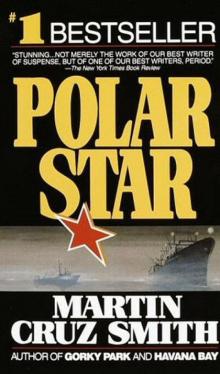 Polar Star
Polar Star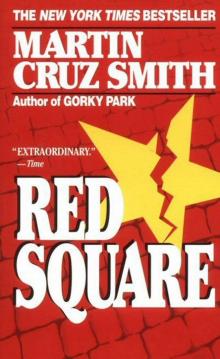 Red Square
Red Square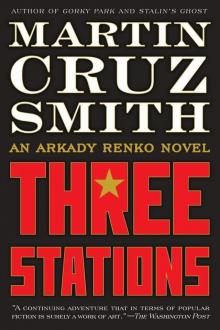 Three Stations
Three Stations Wolves Eat Dogs
Wolves Eat Dogs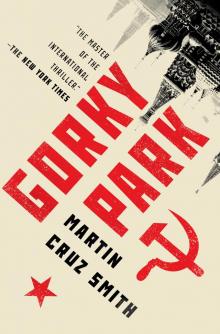 Gorky Park
Gorky Park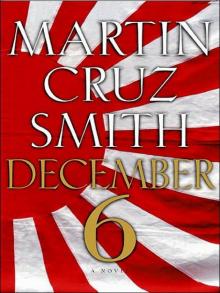 December 6
December 6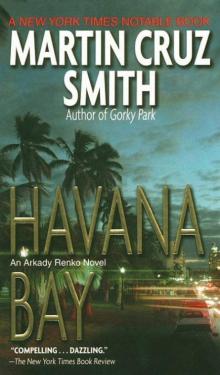 Havana Bay
Havana Bay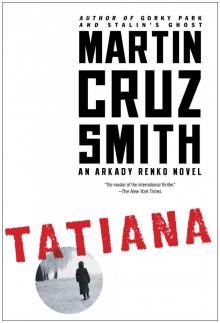 Tatiana
Tatiana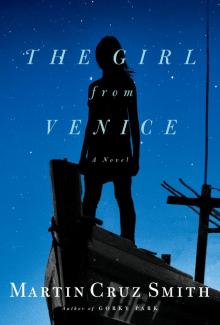 The Girl From Venice
The Girl From Venice Stalin's Ghost
Stalin's Ghost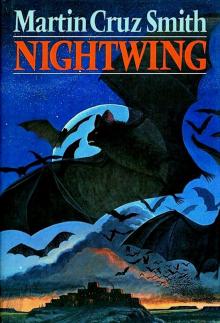 Nightwing
Nightwing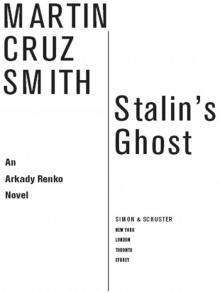 Stalin s Ghost
Stalin s Ghost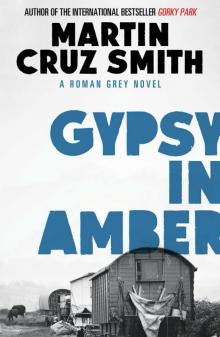 Gypsy in Amber
Gypsy in Amber Rose
Rose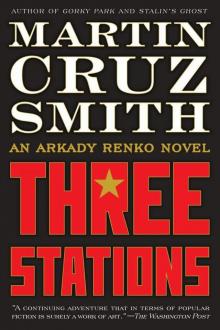 Three Stations: An Arkady Renko Novel
Three Stations: An Arkady Renko Novel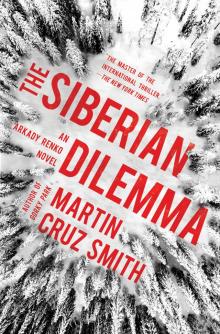 The Siberian Dilemma
The Siberian Dilemma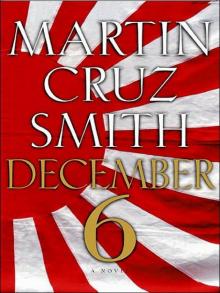 December 6 (V5.0)
December 6 (V5.0)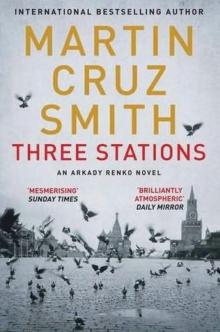 Three Stations ar-7
Three Stations ar-7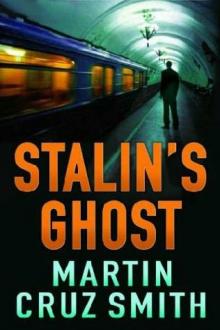 Stalin’s Ghost ar-6
Stalin’s Ghost ar-6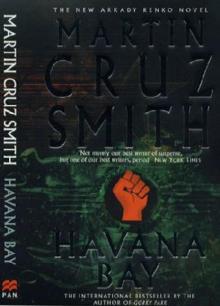 Havana Bay ar-4
Havana Bay ar-4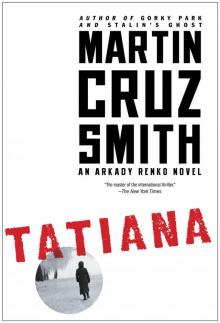 Tatiana ar-8
Tatiana ar-8